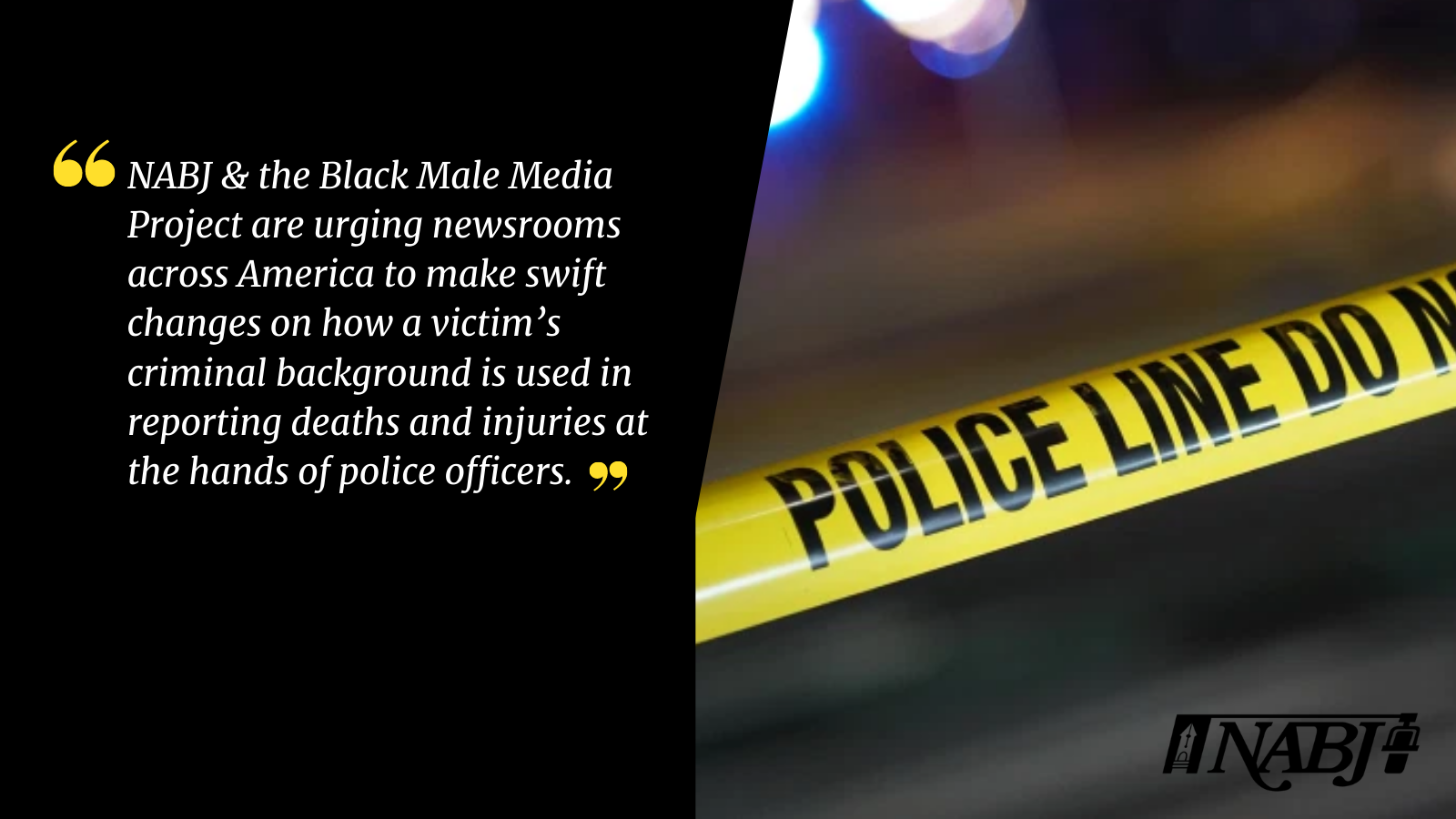The National Association of Black Journalists (NABJ) Board of Directors and the organization’s Black Male Media Project (BMMP) are urging newsrooms across America to make swift changes on how a victim’s criminal background is used in reporting deaths and injuries at the hands of police officers.
The Black Male Media Project is an ad hoc program and committee of the NABJ Board of Directors, and, after careful research and observation, the group developed a resolution that outlines the unfair or inappropriate use of a person’s past criminal background when referencing or reporting a current event where law enforcement has used lethal force on that person. This is an issue that has disproportionately impacted the Black community.
The committee, chaired by NABJ Vice President-Broadcast Ken Lemon, found that the existence of a criminal record is often used by law enforcement to retroactively justify the use of lethal force. For instance, someone who is killed by law enforcement during a traffic stop for a broken taillight should not have a prior arrest or court record reported as part of their background. Especially if the officer was not aware of the previous arrest, and it was not a contributing factor in the incident.
“Journalists must be on guard at all times to avoid the trap of advancing narratives that don’t fall in line with the basic journalistic principles of fairness and truthful reporting. We should thoroughly analyze and fact-check a narrative about a person who is dead, cannot defend themselves, or is unable to tell their side of the story before reporting it,” said NABJ President Dorothy Tucker.
“As the BMMP outlines its resolution: ‘Journalists must not treat an arrest as a conviction and should not rush to repeat criminal record details supplied by law enforcement agencies if they do not apply to the story, because the public perception of the victim who was harmed, shot or killed by law enforcement cannot easily be corrected once it has been reported.’”
BMMP Chair Lemon expounded: “Too often the person’s criminal record has no connection to the reason for the encounter with law enforcement. That information is often seen as a justification of the use of force when studies show us Black males are overwhelmingly the subject of unnecessary use of force. This practice does little to help explain what happened and hinders efforts to find and report the truth. If the trend that supports the use of force continues, it will drive a deeper wedge between law enforcement and the people they are sworn to serve and protect, and will create distrust between news organizations and the communities they serve.”
With these concerns in mind, the NABJ Board adopted the following recommendation by the BMMP committee that will be included in its style guide updates:
Criminal Record Use: To ensure accurate reporting and to avoid the villainization of victims, the existence of a prior criminal record — or even a previous arrest — should only be reported when there are facts proving that the prior criminal record was directly related to the incident being reported.
The Black Male Media Project resolution, which was adopted by the Board in early August, includes the following points and recommendations:
- When a journalist’s reporting villainizes a person accused of wrongdoing to justify the use of lethal force, then they must also be fair and vigorously seek an officer’s record to justify their record of stewardship of law and order.
- News managers bear the responsibility to ensure journalists do not jump to conclusions without in-depth reporting — especially in racial justice circumstances.
- Journalists must not treat an arrest as a conviction. When journalists repeat the accusations or alleged details of an individual’s criminal background as fact without fact-checking, they can unwittingly smear a victim.
Read the full resolution here.
-30-
ABOUT THE NABJ BLACK MALE MEDIA PROJECT
The Black Male Media Project is a program and committee developed by NABJ in 2017. It exists to promote the accurate portrayal of the contributions of Black men to their communities and to support Black male journalists through professional development, networking and mentorship.

